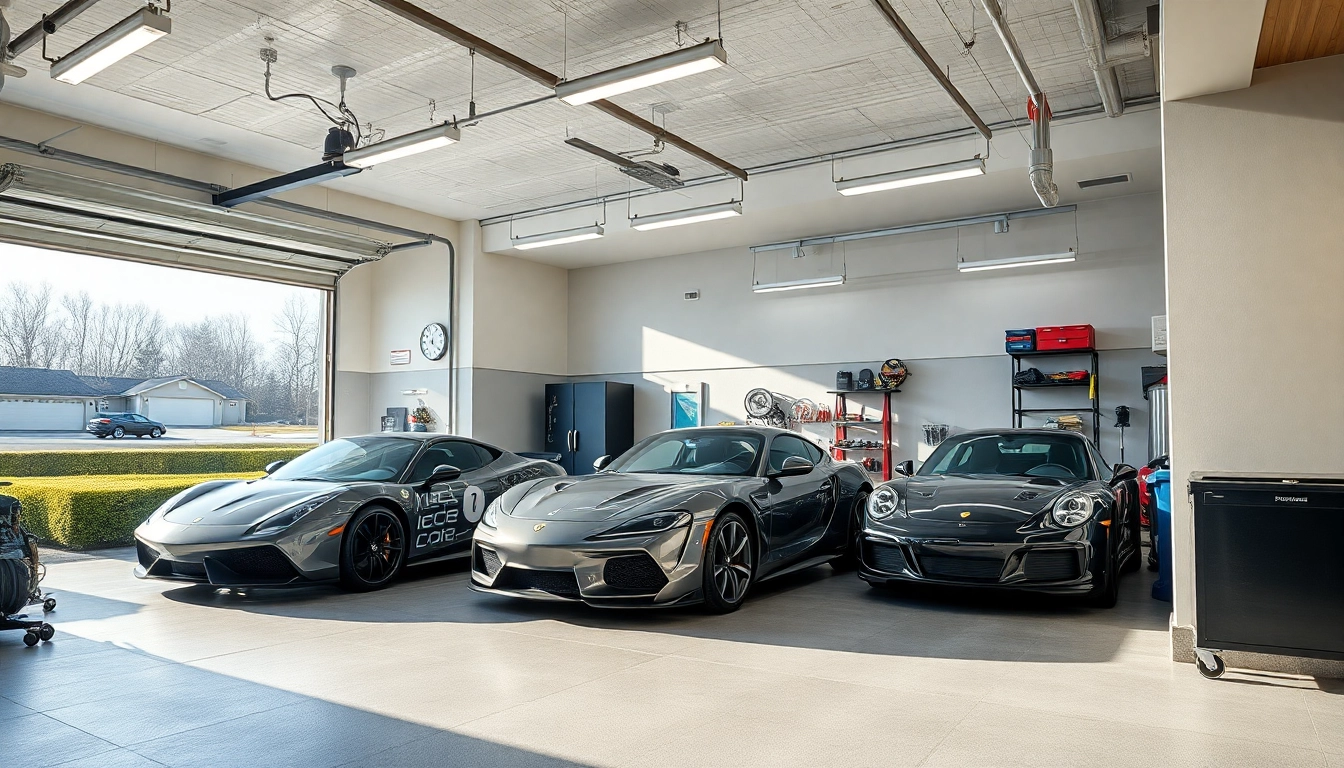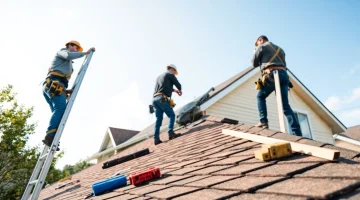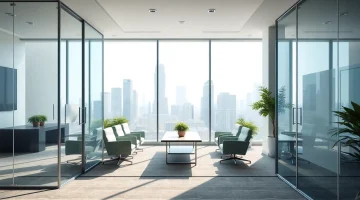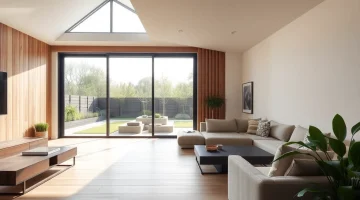
Elevate Your Space: Innovative Ideas for Custom Garages Tailored to Your Needs
Understanding Custom Garages
When we talk about enhancing the functionality and aesthetics of your property, one of the most transformative additions can be the integration of custom garages. These tailored structures are not only designed to shelter vehicles but offer a wide array of benefits that can elevate the usability of your property.
What Defines a Custom Garage?
A custom garage is a tailored space built to meet the specific needs and tastes of the homeowner. Unlike pre-fabricated or standard garages, custom garages give you the freedom to choose everything from layout and size to materials and finishes. The essence of a custom garage lies in its personalized approach, allowing homeowners to optimize the space based on their individual requirements—be it vehicle storage, workshop areas, or even recreational spaces.
Benefits of Custom Garages
- Tailored Space: Custom garages can be designed to accommodate specific vehicles, tools, or equipment, making them ideal for hobbyists, collectors, or small business owners.
- Increased Property Value: A well-designed custom garage can enhance your property’s curb appeal and overall value, making it an appealing feature for future buyers.
- Improved Functionality: Whether it’s for storage, work, or hobbies, a custom garage maximizes utility, allowing for organized and efficient use of space.
- Energy Efficiency: Many custom garages can incorporate eco-friendly materials and technologies that contribute to energy savings and reduced carbon footprints.
Common Misconceptions About Custom Garages
Despite their growing popularity, various myths surround custom garages. One prevalent misconception is that custom garages are significantly more expensive than traditional options. While it’s true that quality comes at a cost, the long-term benefits and added value can often outweigh the initial investment. Furthermore, many believe that designing a custom garage requires extensive time and complex procedures. However, with the right planning and professional guidance, the process can be smooth and time-efficient.
Design Elements of Custom Garages
Choosing the Right Layout
The layout is a critical starting point in designing a custom garage. Considerations include how many vehicles you plan to store, whether you want additional space for equipment or a workshop, and the overall flow of traffic within the garage. A well-planned design will not only maximize space but make everyday tasks easier and more efficient.
Materials and Finishes for Your Garage
Material selection is vital; it affects durability, aesthetics, and maintenance. Common materials include wood, steel, and concrete. Each has its pros and cons—for instance, wood can provide a classic look, while steel offers robustness and longevity. Choosing the right finishes, such as paint or flooring, can also contribute to the overall look and feel of your garage. Opt for finishes that are easy to clean and resistant to wear and tear.
Incorporating Technology Into Custom Garages
Today’s custom garages can integrate advanced technologies that enhance convenience and security. Smart devices such as automated door openers, security cameras, and lighting systems allow for streamlined access and monitoring. Additionally, climate control systems can maintain the ideal environment for sensitive collections or tools, making garages not just functional but also comfortable spaces to work in.
Steps to Planning Your Custom Garage
Budgeting and Cost Considerations
Budgeting for a custom garage requires careful planning. Begin by determining how much you are willing to invest and what specific features are most important to you. Keep in mind that costs can vary significantly based on materials, size, and labor. It is advisable to consult with professionals who can provide accurate estimates so that your financial projections align with the reality of building a custom garage.
Permitting and Regulations
Before construction can commence, it’s essential to understand local building codes and zoning laws that may affect your project. Many municipalities require permits, especially for structures that deviate from standard designs. Researching these regulations upfront can prevent costly delays and complications during the construction process.
Working with Professionals vs. DIY
Deciding whether to hire professionals or tackle the project yourself can significantly impact your garage’s final outcome. While DIY projects might seem cost-effective, they can lead to challenges such as improper installation or safety hazards if not executed correctly. Conversely, professionals bring expertise, ensuring that your custom garage meets safety standards and mirrors your vision accurately. Evaluating your skills, budget, and timeline will guide this decision.
Custom Garage Use Cases
Garages for Hobbyists and Collectors
Custom garages are an excellent choice for hobbyists and collectors. Whether you’re an auto enthusiast needing space for vehicles, or a craftsman looking for a workshop environment, a custom garage can be tailored to suit specific interests. Features might include ample storage for tools, dedicated workspaces, or display areas for collectibles, enhancing both functionality and enjoyment.
Functional Custom Garages for Businesses
For those running small businesses, a custom garage can serve as a practical workspace. Whether it’s for auto repair, a workshop, or storage for supplies, these garages can be designed to improve productivity. Incorporating features such as shelving, office space, and temperature control can create a professional environment conducive to business operations.
Showcase Garages for Enthusiasts
Some homeowners may wish to transform their garage into a showcase of their passions—be it vintage cars, motorcycles, or other collectibles. Showcase garages often include features like exhibition lighting, custom cabinetry, and polished floors to create an aesthetically appealing space that highlights the owner’s treasures. These garages often become points of pride and can be spaces for hosting gatherings or events.
Maximizing Your Custom Garage Investment
Maintenance Tips for Longevity
To ensure your custom garage remains functional and attractive, regular maintenance is key. This includes keeping the space clean, checking for structural integrity, and addressing any wear and tear proactively. Simple measures such as sealing floors, cleaning gutters, and regularly inspecting the roof can prolong the life of your garage, protecting your investment.
Enhancing Resale Value with a Custom Garage
Investing in a custom garage not only enhances your living space but can significantly boost your property’s resale value. Buyers often view garages as desirable features, especially if they are well-designed. When planning your custom garage, consider how features like extra storage, energy efficiency, and aesthetics can appeal to future potential buyers, further increasing your property’s marketability.
Community and Design Trends in Custom Garages
Staying updated with current design trends can help you create a custom garage that is not only functional but visually appealing. Some emerging trends include the use of sustainable materials, minimalist designs, and integrated smart home technology. Additionally, community preferences might vary; knowing what your neighbors appreciate can help tailor your garage to stand out without over-customizing it for your area.



